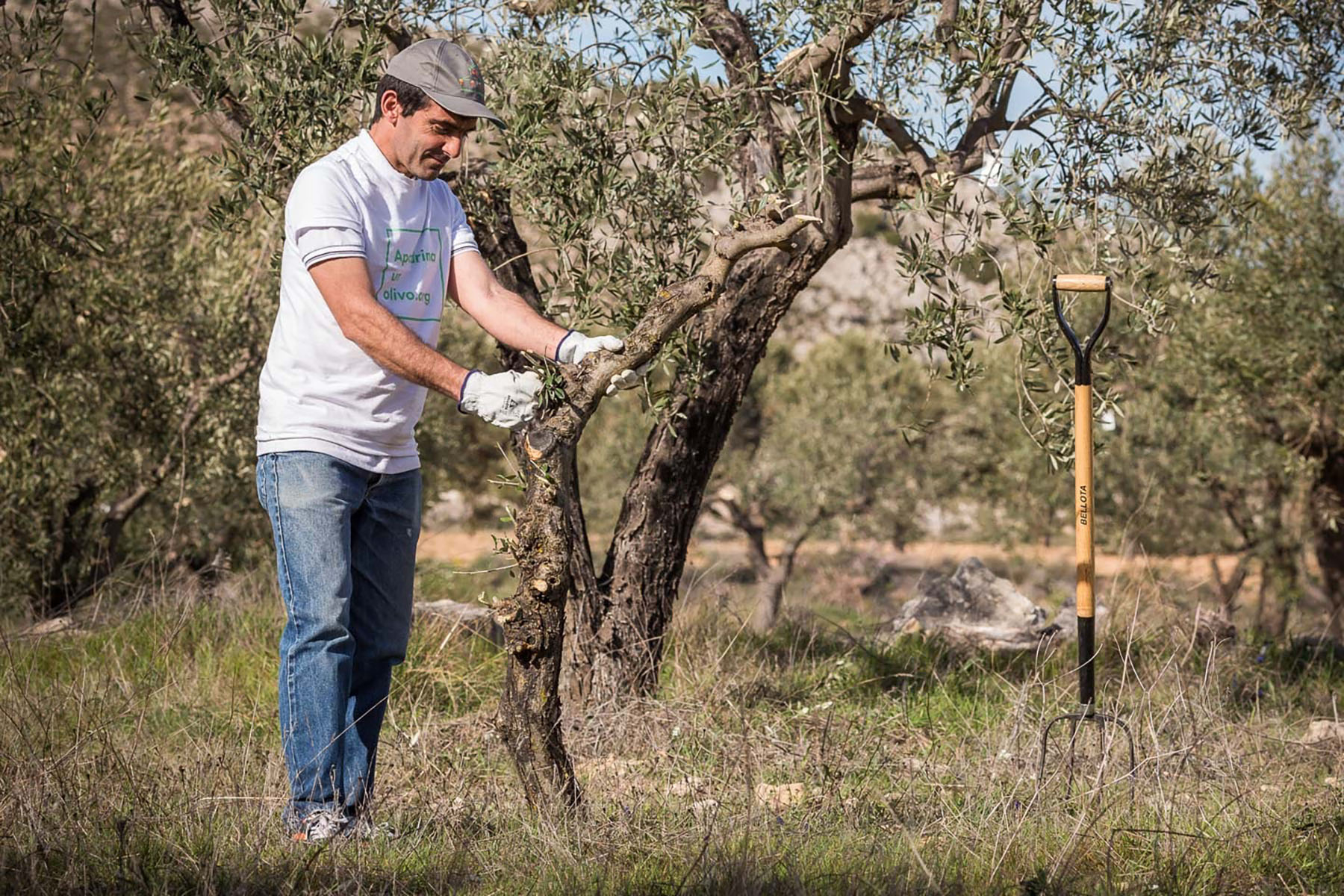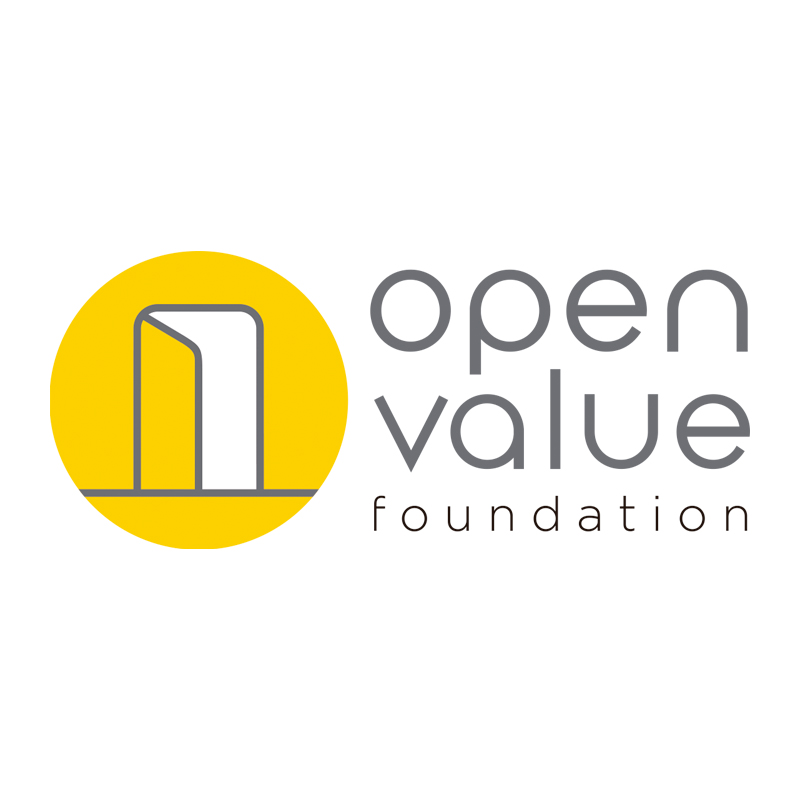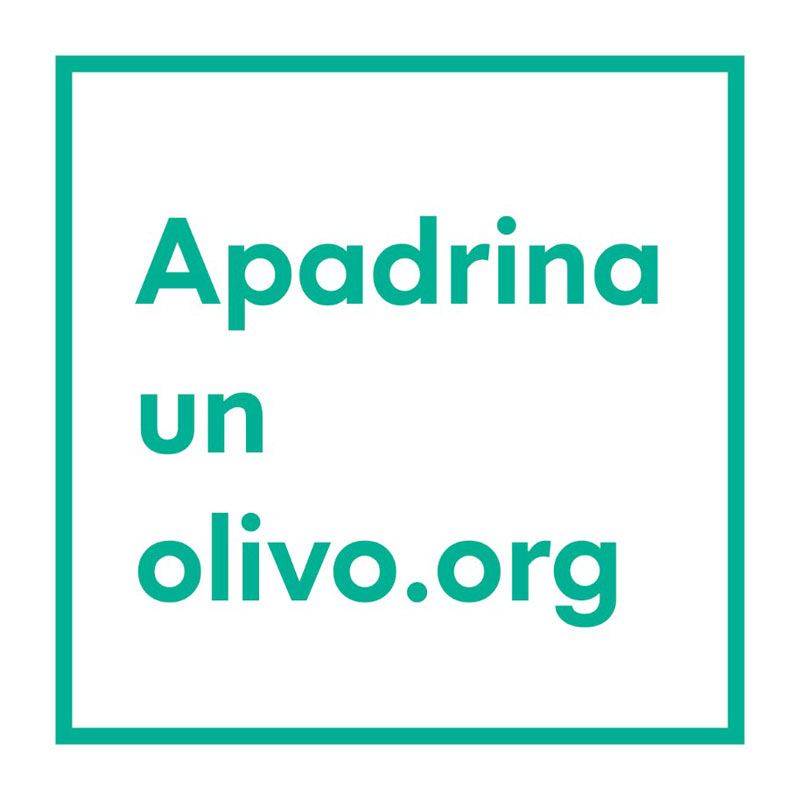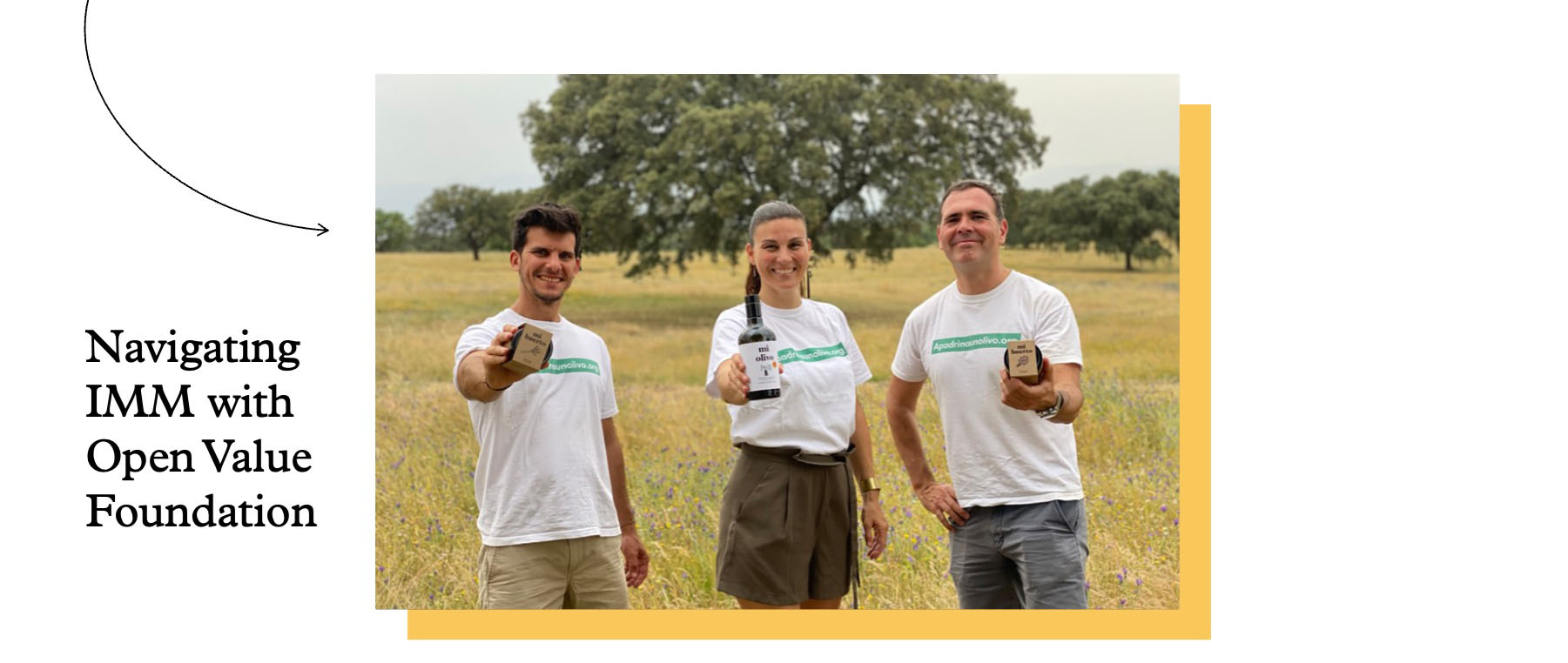Emptiness
Gaps to be filled. Investments crowd in. The language of capital is often the language of filling an emptiness.
If capital flows as water flows, we can imagine it coming to rest in the cracks of parched earth. Filling emptiness – in the hopes that once bare branches will bear olives.
In the hopes that an empty village will fill.
Emptied Spain
80% of people in Spain live in 30% of the territory. The other 70% is, in a sense, empty. There is a term for this emptiness, la España vaciada, emptied Spain.
This an emptiness of people. There are still trees. There are still villages.
These are the words of Jose Alfredo Martín Piñas, one of the social entrepreneurs behind Apadrina un Olivo, a company focused on solving the challenges of emptied Spain – one tree at a time. When a village empties, its trees remain. In the case of olive trees, they will not survive without tending. Recovering a tree keeps biodiversity in balance, sinks carbon and eventually, if the tree survives, can help fill an emptied village.
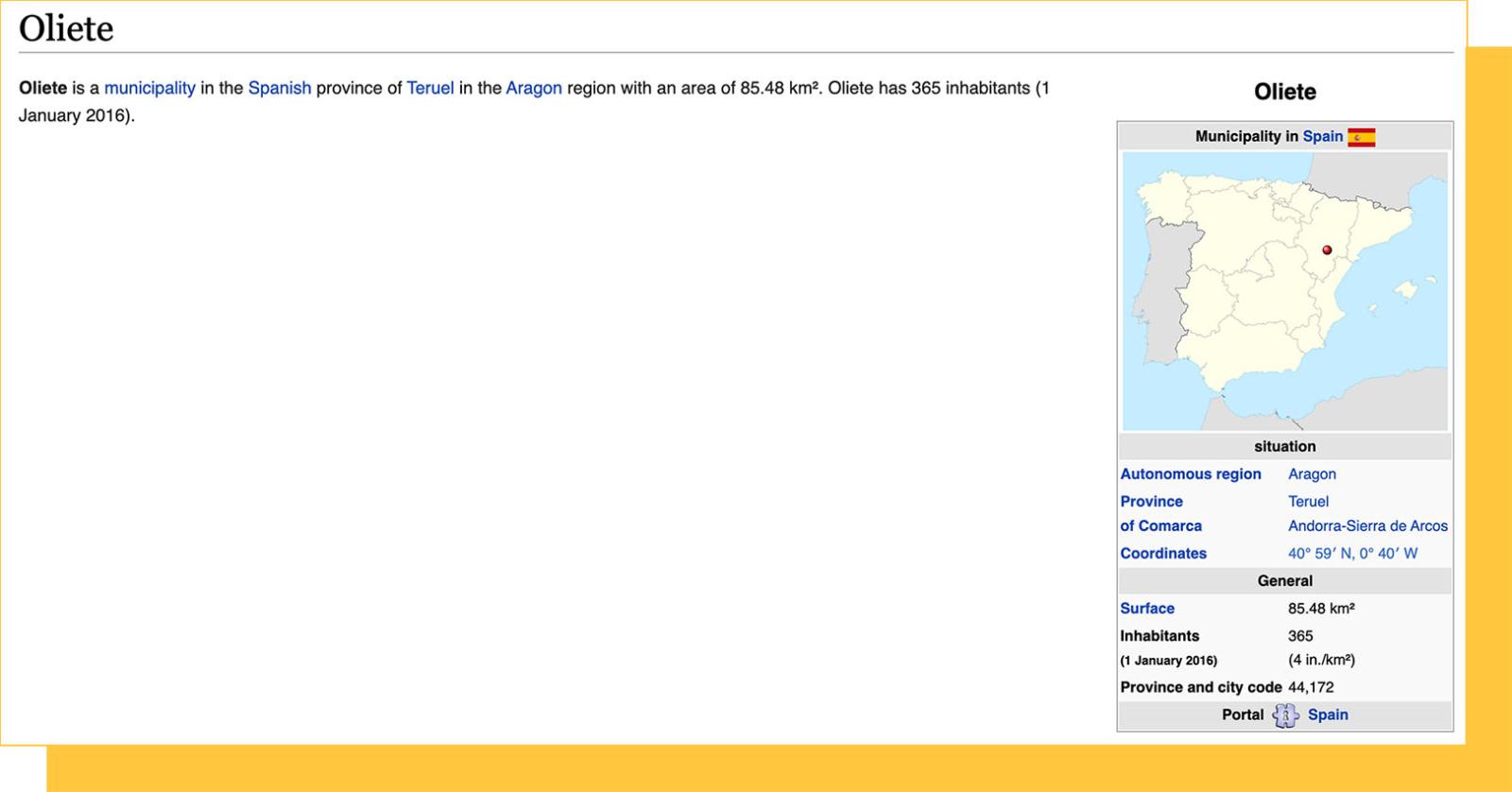
Tending
2013: Alberto Alfonso Pordomingo, one of the founders of Apadrina un Olivo, is young and he lives in Barcelona. He returns to the village of Oliete to help his family tend trees. He’s alone collecting olives. He looks over at the trees next to his family’s trees: they sit abandoned.
Alberto Alfonso has an idea. Like Jose Alfredo Martín, Alberto Alfonso is studying, working in tech. Trees + tech.
“That’s how he came with an idea of allowing people to adopt an olive three through a website,” said Jose Alfredo Martín.
All the founders of Apadrina un Olivo have ties to rural Spain, and as young people living in cities, they knew first-hand the gap between urban and rural communities. In olive trees they saw the filler of the gap. Two of the five founders had direct links with the village of Oliete, a place where the abandonment of olive trees was all too apparent.
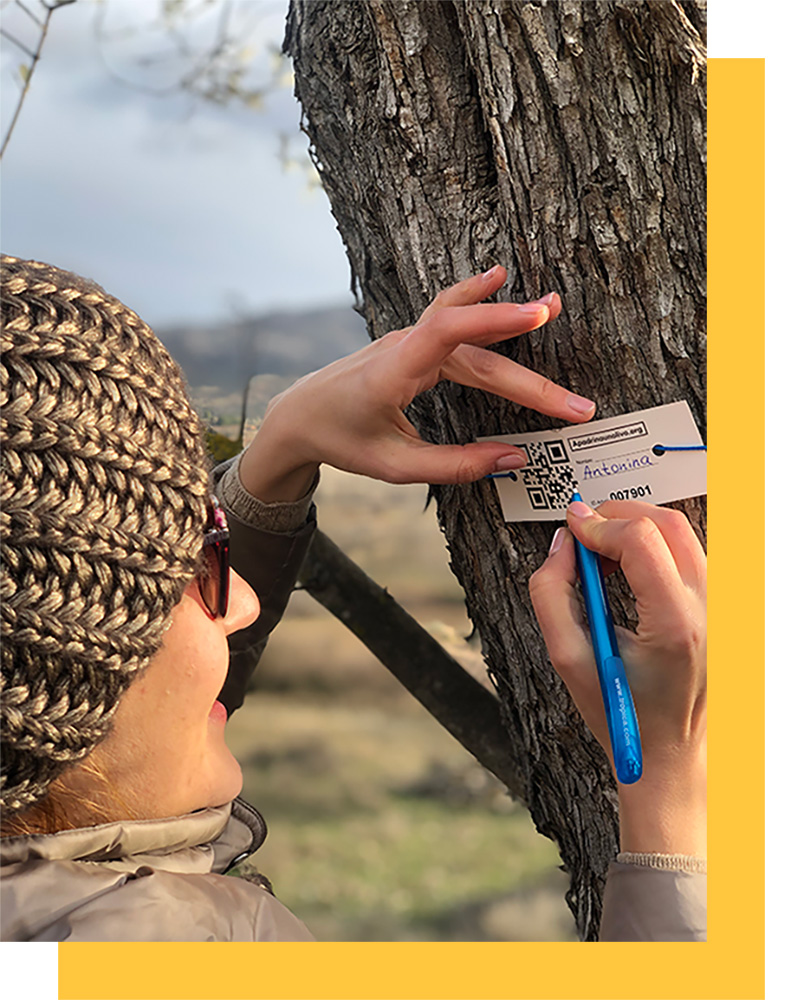
Adopting
Apadrina un Olivo lets people adopt an olive tree in Oliete. Anyone with €60 can choose a tree, give it a name and get 2 litres of olive oil per year. Adopters are also encouraged to visit their tree (more on that later). And any visitor to the website can buy some great olive oil without adopting.
Here’s how it benefits the smallholder farmers and the town of Oliete: the farmers grant stewardship of the territory where the olive trees sit abandoned. Apadrina un Olivo works to recover their trees for ten years, and after the sixth year, gives the smallholders 10% of benefits as compensation. It can take the first 5 years to recover the tree.
“The smallholders that give their trees see that this is good for the village,” said Jose Alfredo Martín. “They do it more for the village than for the money, as they see it employs people and brings tourism – even if they had nothing to lose economically thinking, but you needed to build trust.”
Building trust took a lot – for one, the team at Apadrina un Olivo needed to further prove their concept.
Seeds
Luck, learning, close ties with the village of Oliete and some unique relationships with capital providers took Apadrina un Olivo from an idea to a social business.
In the luck category, an email to TVE, a public TV station, yielded an unexpected result: a crew would come to film in Oliete. The exposure helped: 200 people adopted trees thanks to it. The first €1000 rolled in. With more partnerships came more visibility: co-branding with Grupo Deoleo put the project on the labels of olive oil bottles.
But while visibility increased, the real challenges of the venture came into focus. Some villagers remained sceptical, so convincing them of the value project was a priority. “We had the pressure to do it very well with those trees at the beginning,” said Jose Alfredo Martín.
There were further problems, stemming from the practicalities of operating in an empty place: even while they were recovering some olive trees, others were being abandoned.
“That was happening because smallholder farmers had to go to an oil mill which was two hours from the town and not working very well,” said Jose Alfredo Martín. “For them, olive trees were not an economic activity but a hobby. We thought that we could bring the mill to the village, and find a formula to satisfy the smallholder farmers – so that they would not leave the village, and therefore would not abandon the trees. We had a year of meetings with them. Finally, in 2016 we went ahead with an investment, raising €340k. That way we could have an oil brand, called Mi Olivo and could sell the oil. It’s the first brand saying that if you buy me, you are helping rural people.”
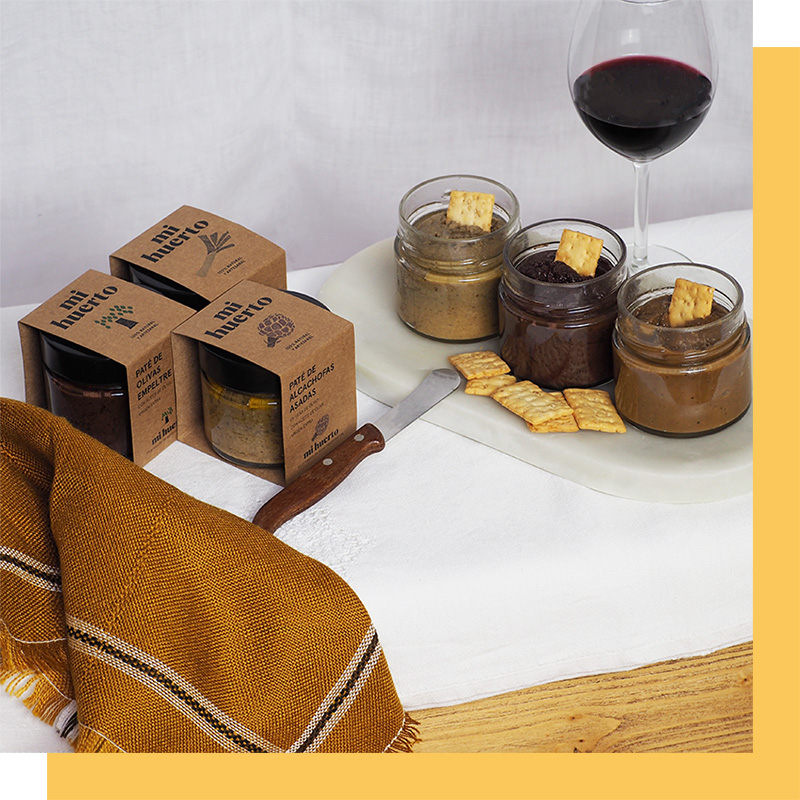
Gaps
The establishment of the oil mill enabled the production of olive oil within the village of Oliete and satisfied some smallholders originally sceptical of the project. But it took a unique relationship with a capital provider – Open Value Foundation – to help Apadrina un Olivo scale up, get specific about their social goals and determine how best to measure progress.
In 2020, Open Value Foundation decided to invest in Apadrina un Olivo through a grant of €25k and a loan of €25k -- a hybrid approach. This capital provision had several key implications for Apadrina un Olivo. Not only was the team able to purchase necessary items, like machinery; they also benefited from non-financial support, such as open dialogues leading to a viability plan in support of the loan, and assistance in the development of their theory of change.
“They (Open Value Foundation) helped a lot to give reasoning and structure to business plans,” said Jose Alfredo Martín. Later on, that structure proved essential to communicating the value of Apadrina un Olivo to other investors, such as the Fondo de Fundaciones de Impacto, a vehicle set up by Open Value Foundation, Fundación Anesvad and Ship2b Foundation.
Much of Apadrina un Olivo’s success depends on collaboration between stakeholders: capital providers, smallholders and villagers each have a stake in seeing Apadrino un Olivo succeed. With a complex array of relationships, it helped to have more established plans for viability in place, and Open Value Foundation’s collaboration was instrumental in this development.
Regarding why her organisation chose to support Apadrina un Olivo, Maria Cruz-Conde, Co-Director of Open Value Foundation, said:
An impact mindset took the form of better practices in impact measurement and management – see our case study for more on how Open Value Foundation helped Apadrina un Olivo install these practices.
Branching
The team at Apadrina un Olivo developed relationships with some corporates, notably Cobas and Accenture, who bought high volumes of bottled olive oil to give as Christmas gifts. These large orders (10k and 14k bottles) stress-tested the operation and led Apadrina un Olivo to develop their e-commerce capabilities.
The dual revenue streams – selling olive oil and selling trees to steward – remain pillars of the business. Stewards of trees get the knowledge that they’re saving a tree, and olive oil produced by the farming they support. There are currently 7,000 stewards from 27 countries. Thanks to this, 15,000 trees have been recovered.
Stewardship also promotes tourism: each year 3,000 visitors make the trip to Oliete to see their tree. People from large cities across Europe come to visit, fostering a “connection between rural and urban areas,” a stated goal of the project. Apadrina un Olivo supports their tree tourism directly, with their house of the adopter – a hotel that gives 4 free nights to those who adopt olive trees – and through free tours.
Without visitors, Oliete would be unlikely to keep basic services, from restaurants to doctors, in business.
“When we built the mill, the school was about to close,” said Jose Alfredo Martín, “because there were not enough kids. As we had to employ the master of the mill, one person came to the town with three kids, and thanks to this they saved the school.”
In a town of about 300, a few new residents can mean the difference between having a school and not having one. It also helps that Apadrino un Olivo has a team of 22.
In another empty village
Apadrina un Olivo’s plans for expansion include a similar project in the nearby village of Alacón. A traditional producer of vegetables canned in olive oil, such as artichokes, peppers and leeks, Alacón used public funds to build a facility to scale up these operations, but when production failed to get off the ground, Apadrina un Olivo saw the abandoned facility and the high quality of the products as an opportunity.
It’s another initiative in line with the crowdfarming model of Apadrina un Olivo: a person buying a can of food is rarely aware of the social impact the can of food enabled, but the project in Alacón intends to change that, putting consumers in touch with their impact and supply chain implications.
When it comes to replicating the ideas of Apadrina un Olivo outside Spain – in emptied regions of the Mediterranean, for instance – Jose Alfredo Martín remains humble. “We have not reached crazy numbers, e.g., transforming half of the province of Teruel,” he said. “But we have built enough indicators to build a track record – next time will need less time.”
Filling emptiness
Pioneers go to the empty places. Deserts. Mountains. Outer space. As long as there’s emptiness, there’s room for pioneers.
Apadrina un Olivo’s idea is a pioneering one, and as such, it should light the way for others, sparking inspiration for those who seek to deal with challenges like emptied Spain.
The support of Open Value Foundation was unique in the array of non-financial support offered and the hybrid approach of grant and loan. In the willingness to provide a small ticket size for a pioneering idea, they had a catalytic effect. Partnerships like this one provide a learning example on how a small organisation can continue to explore and scale up their impact (for the details, be sure check out our case study).
Emptied spaces aren’t going to fill themselves. The gaps for rural Europeans – skills gaps, low employment rates among youth, high gender gaps in employment – are well-established. The list of ideas for solving these challenges isn’t empty – but there’s plenty of room for more.


